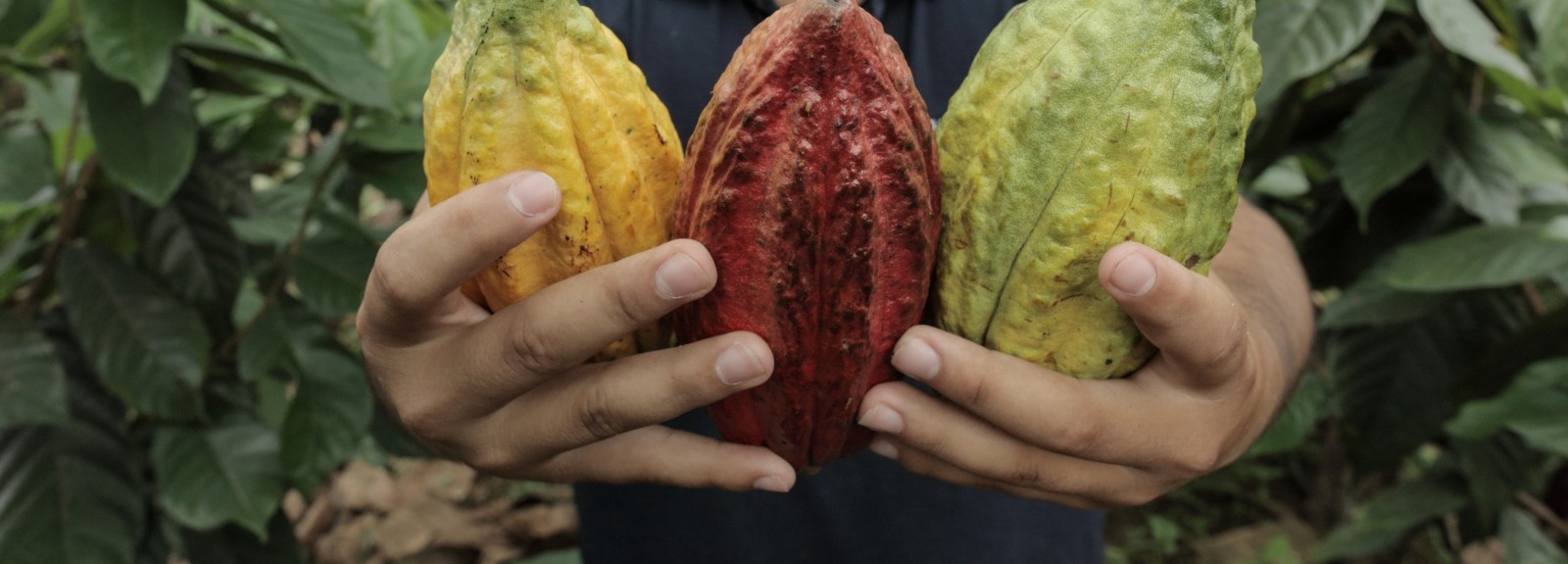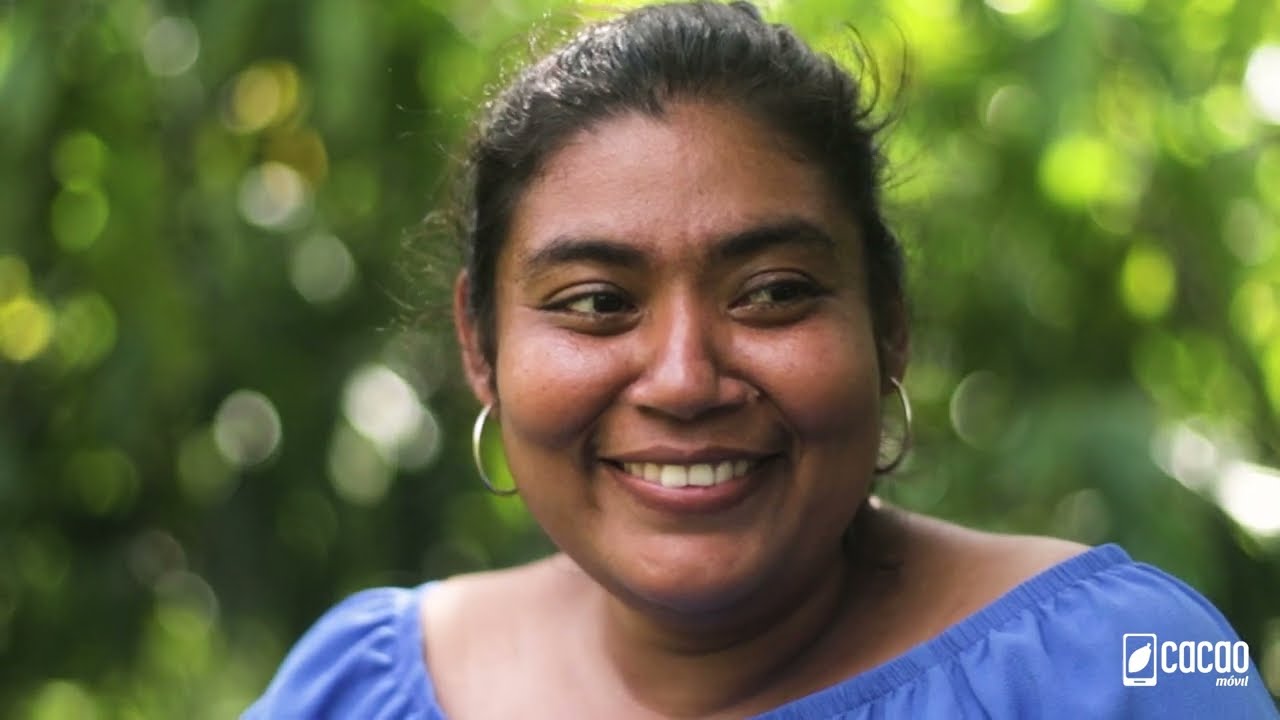Corus organization Lutheran World Relief has long recognized the cocoa sector’s transformative power for people and the planet. Our work spans decades of innovation and partnership with farmers, cooperatives, companies, and governments, all aimed at increasing cocoa productivity, strengthening sustainable livelihoods, and protecting the environment.
Here are three reasons why we care about cocoa and why you should too.
1. Cocoa can advance women’s leadership.
Cocoa farming is more than just an agricultural activity; it has the potential to empower women and advance gender equality. In many regions, women play a pivotal role in the cultivation of cacao trees and the production of cocoa from their beans. Yet, they often face significant barriers to leadership within the sector. Our programs specifically target these barriers, ensuring women receive equitable access to resources, training and market opportunities.
Such support for women in the cocoa sector is an integral aspect of our economic development program in Peru called Transforming the VRAEM: The Land of Fine Flavor Cacao, funded by the United States Agency for International Development (USAID). Focused within the departments of Cusco, Ayacucho and Junín, the program accelerates the economic growth of the VRAEM region by strengthening the capacities of its farmers to grow, process and sell high-quality cacao while elevating the region’s status as a sought-after cacao producer. The program has established a network of female leaders in the cocoa sector and recently hosted its inaugural women's regional meeting. This gathering allowed participants to exchange knowledge, hone their skills, and foster relationships. It began with a panel discussion on the role of women in cooperatives, attended by representatives from the Pangoa Agricultural Coffee Cooperative (CAC Pangoa) and the Peruvian Association of Cacao Producers (APPCacao). Olinda Cruz, president of the National Network of Women of APPCacao, encouraged the women leaders to harness their talents and take on leadership positions. She also highlighted the monumental shift that producing cacao represents and urged, "Always reaffirm your identity, tell where you come from, let them know that you are indigenous and proud." Project Director Victor Torres emphasized that this is just the beginning: "We are planning a series of training workshops led by experts in various fields to continue strengthening women's leadership and encouraging their participation at the local, regional and international levels."
Justa Borda, Enma Mendez and Nelia Soto took part in the inaugural women's regional meeting of the USAID-funded Transforming the VRAEM: The Land of Fine Flavor Cacao program.
2. Cocoa’s specialty markets can bring small-scale farmers higher prices.
Like wine, cheese, coffee or whiskey, cocoa has distinct organoleptic profiles that help potential buyers discern and appreciate its flavors. For smallholder cocoa farmers, typically unable to capture the full market value of their crop, defining their cocoa's flavor profile and highlighting its origin leads to significantly higher profits through specialty cocoa pricing. Recognizing this opportunity, Lutheran World Relief partnered with ZOTO to develop an innovative online tool that highlights the diversity of cocoa flavors through the United States Department of Agriculture (USDA) Food for Progress Maximizing Coffee and Cocoa Opportunities in the Americas (MOCCA) Project. Our Cocoa Flavor Map, which showcases flavors from El Salvador, Ecuador, Guatemala, Honduras, Nicaragua and Peru, assists cocoa farmers in diversifying their offerings, gaining recognition and accessing new markets. The map features 85 differentiated flavor profiles that are being commercialized and have garnered international acclaim in cacao and chocolate competitions.
Through MOCCA, we have also launched a Guide for the Assessment of Cacao Quality and Flavour with Cacao of Excellence. This valuable reference manual marks a key milestone for the cocoa sector. Developed with expertise from producers, buyers, traders, manufacturers, researchers and development experts, the guide provides a universal language to describe cocoa flavor attributes. Our Director of MOCCA, Carolina Aguilar, recently highlighted the significance of this guide and its impact on farmer income at the 2024 World Cocoa Conference in Brussels. By creating a common language around cocoa quality and flavor, the guide helps farmers connect more effectively with the market, ensuring that their hard work and dedication are rewarded with better prices and long-term relationships with buyers.
Screenshot of the Cocoa Flavor Map.
3. Cocoa farmers can earn a living while helping the planet.
Trees that produce cacao pods—where cocoa comes from—benefit from natural shade which can help with biodiversity, moisture retention and protection from the heat of the sun. That's why they are ideal for agroforestry systems, where typically shorter cacao trees are planted beneath larger canopy trees. These canopy trees not only provide shade but also offer environmental benefits (known as environmental services). Lutheran World Relief has long collaborated with smallholder cocoa farmers in Latin America and Asia to nurture cocoa agroforestry systems on their land. Now, we are taking these efforts to the next level and accompanying our farmer partners in documenting their sequestered carbon and receiving financial incentives for doing so.
Lutheran World Relief has signed a Memorandum of Understanding (MoU) with Acorn, an initiative of Rabobank, to explore a potential partnership that would help cocoa farmers in Peru generate additional income through the sale of Carbon Removal Credits (CRUs) for the carbon they sequester on their cocoa plots by adding in non-cocoa trees, i.e. agroforestry. In such a partnership, Lutheran World Relief would provide technical support to help cocoa farmers establish and maintain a sustainable agroforestry system on their land, and Acorn would facilitate the sale of the CRUs with 80% of the profits going back to the farmers. Considering the potential combined benefits for people, planet and profit, Lutheran World Relief views this as a scalable, market-driven opportunity to address farmer poverty while combatting climate change.
Oscar Pachum Ical prunes a tree that is part of the agroforestry system on his cooperative's cacao farm to ensure proper shade management.


